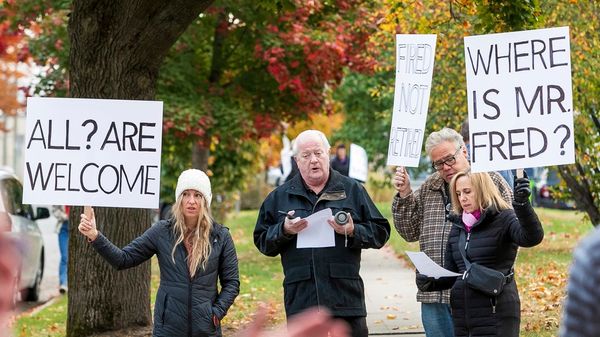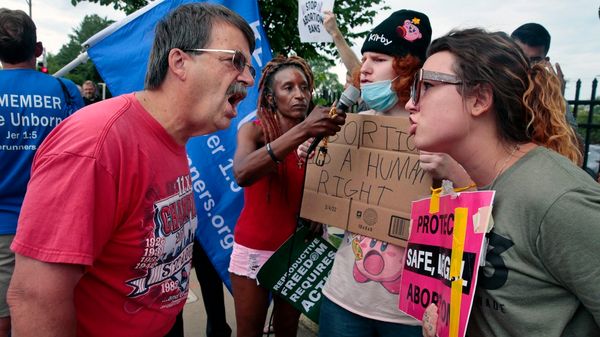
Aug 16
Kansas Will Pay $50,000 to Settle a Suit over a Transgender Highway Patrol Employee's Firing
John Hanna READ TIME: 3 MIN.
Kansas will pay $50,000 to settle a federal anti-discrimination lawsuit filed by a former state Highway Patrol employee who claimed to have been fired for coming out as transgender.
Democratic Gov. Laura Kelly and eight leaders of the Republican-controlled Legislature unanimously approved the settlement during a brief online video conference Thursday. The state attorney general's office pursued the settlement in defending the Highway Patrol, but any agreement it reaches also must be approved by the governor and top lawmakers.
Kelly and the legislators didn't publicly discuss the settlement, and the amount wasn't disclosed until the state released their formal resolution approving the settlement nearly four hours after their meeting. Kelly's office and the offices of Senate President Ty Masterson and House Speaker Dan Hawkins did not respond to emails seeking comment after the meeting.
The former employee's attorney declined to discuss the settlement before state officials met Thursday and did not return a telephone message seeking comment afterward. The lawsuit did not specify the amount sought, but said it was seeking damages for lost wages, suffering, emotional pain and "loss of enjoyment of life."
The ex-employee was a buildings and grounds manager in the patrol's Topeka headquarters and sued after being fired in June 2022. The patrol said the ex-employee had been accused of sexual harassment and wasn't cooperative enough with an internal investigation. The lawsuit alleged that reason was a pretext for terminating a transgender worker.
The settlement came four months after U.S. District Judge John Broomes rejected the state's request to dismiss the lawsuit before a trial. Broomes ruled there are "genuine issues of material fact" for a jury to settle.
The U.S. Supreme Court ruled in 2020 that a landmark 1964 federal civil rights law barring sex discrimination in employment also bars anti-LGBTQ+ bias.
Court documents said the former Highway Patrol employee, a Topeka resident sought to socially transition at work from male to female. The ex-employee's last name was listed as Dawes, but court records used a male first name and male pronouns. It wasn't clear Thursday what first name or pronouns Dawes uses now.
In a December 2023 court filing, Dawes' attorney said top patrol leaders met "a couple of months" before Dawes' firing to discuss Dawes being transgender and firing Dawes for that reason.
The patrol acknowledged the meeting occurred but said the leaders decided to get legal advice about the patrol's "responsibilities in accommodating Dawes" in socially transitioning at work, according to a court filing by a state attorney in November 2023.
Court filings said the meeting wasn't documented, something Dawes' attorney called "a serious procedural irregularity."
The patrol said in its court filings that Dawes' firing was not related to Dawes being transgender.
It said another female employee had complained that in May 2022, Dawes had complimented her looks and told her "how nice it was to see a female really taking care of herself." Dawes also sent her an email in June 2022 that began, "Just a note to tell you that I think you look absolutely amazing today!" The other employee took both as sexual advances, it said.
Dawes acknowledged the interactions, but Dawes' attorney said Dawes hadn't been disciplined for those comments before being fired – and if Dawes had been, the likely punishment would have only been a reprimand.
The patrol said it fired Dawes for refusing the first time an investigator sought to interview him about the other employee's allegations. The patrol said Dawes claimed not to be prepared, while Dawes claimed to want to have an attorney present.
Dawes was interviewed three days later, but the patrol said refusing the first interview warranted Dawes' firing because patrol policy requires "full cooperation" with an internal investigation.
"Dawes can point to no person who is not transgender who was treated more favorably than transgender persons," the state said in its November 2023 filing.







